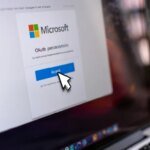The US Cybersecurity and Infrastructure Safety Company (CISA) on Wednesday added two safety flaws affecting N-Abable N-Central to its recognized Exploited Vulnerabilities (KEV) catalogue, citing proof of aggressive exploitation.
N-Ready N-Central is a distant monitoring and administration (RMM) platform designed for managed service suppliers (MSPs), permitting clients to effectively handle and safe shoppers’ Home windows, Apple and Linux endpoints from a single unified platform.
The vulnerabilities in query are listed beneath –
- CVE-2025-8875 (CVSS rating: n/a) – Unstable aerialization vulnerability that would result in command execution
- CVE-2025-8876 (CVSS rating: N/A) – Command injection vulnerability as a consequence of inappropriate disinfection of consumer enter
Each drawbacks are addressed in N-Central variations 2025.3.1 and 2024.6 HF2, launched on August 13, 2025. N-ABLE encourages clients to allow Multifactor Authentication (MFA) particularly for managed accounts.
“These vulnerabilities require authentication to make the most of,” N-Ready mentioned in an alert. “Nonetheless, for safety in an n-central atmosphere, N-Central should be upgraded to 2025.3.1.”
At the moment, we do not know the way vulnerabilities are being exploited in real-world assaults, in what context, and what the size of such efforts is. Hacker Information has reached out to n-able for feedback and can replace the story if there’s a reply.
In mild of lively exploitation, a Federal Non-public Enforcement Division (FCEB) company is really helpful to use mandatory modifications to make sure the community by August 20, 2025.
The event is the day after CISA positioned two years in the past safety flaws affecting Microsoft Web Explorer and Workplace within the KEV catalog –
- CVE-2013-3893 (CVSS rating: 8.8) – Microsoft Web Explorer reminiscence corruption vulnerability that enables distant code execution
- CVE-2007-0671 (CVSS rating: 8.8) – Distant Code Workplace Excel distant code execution vulnerability
The FCEB company may have time till September 9, 2025 to replace to the newest model or discontinue use if the product reaches end-of-life (EOL) standing, as within the case of the product in Web Explorer.









